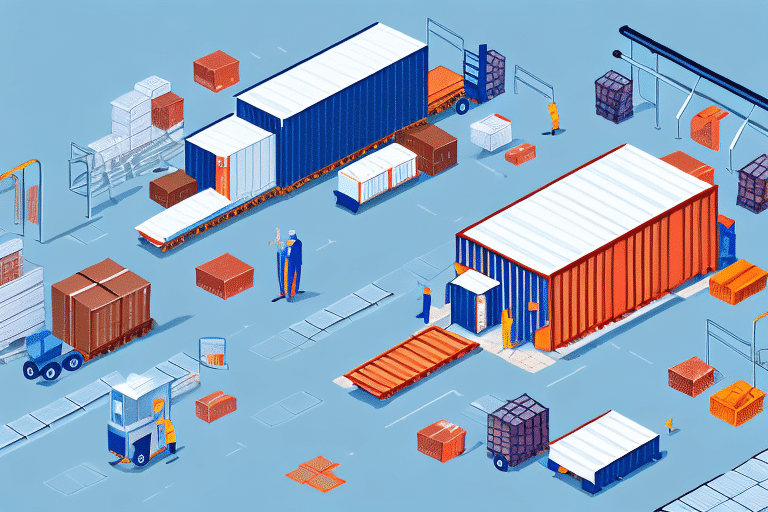Understanding Third-Party Logistics (3PL) Services
Outsourcing logistics operations to a Third-Party Logistics (3PL) provider can significantly enhance your business's efficiency and scalability. A 3PL company offers a range of logistics services, including:
- Transportation Management: Handling the movement of goods via various modes such as air, sea, and land.
- Warehouse Management: Managing storage, inventory control, and order fulfillment.
- Freight Forwarding: Coordinating the shipment of goods across international borders.
- Customs Brokerage: Ensuring compliance with import and export regulations.
By integrating a 3PL provider into your supply chain, you can leverage their expertise to streamline operations and improve delivery performance.
Benefits of Outsourcing to a 3PL Provider
Cost Savings
Outsourcing to a 3PL can lead to substantial cost reductions by eliminating the need for significant investments in infrastructure, technology, and personnel. According to a Forbes article, businesses can save up to 20% on logistics costs by partnering with a 3PL provider.
Expertise and Optimization
3PL providers possess specialized knowledge in logistics and supply chain management. They employ advanced strategies to optimize routes, reduce transit times, and enhance inventory management, leading to increased operational efficiency.
Flexibility and Scalability
As your business grows, your logistics needs may fluctuate. A 3PL provider can scale services up or down based on demand, ensuring that you remain agile in a dynamic market environment.
Improved Customer Service
With a 3PL handling your logistics, you can offer faster delivery times and reliable service, which enhances customer satisfaction and loyalty. Efficient return management handled by the 3PL also contributes to a positive customer experience.
Assessing Readiness for Outsourcing to a 3PL
Evaluating Logistics Complexity
Consider the complexity of your current logistics operations. If managing supply chain activities is becoming increasingly challenging, requiring specialized knowledge, it may be time to consider outsourcing.
Shipment Volume
High shipment volumes can strain your resources. A 3PL provider can efficiently manage large-scale logistics, ensuring consistency and reliability in order fulfillment.
Budget Considerations
Analyze your budget to determine if outsourcing aligns with your financial goals. While there are upfront costs associated with hiring a 3PL, the long-term savings and efficiency gains often outweigh these expenses.
Control and Trust
Outsourcing requires a degree of trust. Assess your willingness to delegate critical aspects of your supply chain to a third party and ensure that the provider aligns with your business values and standards.
Selecting the Right 3PL Provider
Criteria for Choosing a 3PL
When selecting a 3PL provider, consider the following criteria:
- Experience and Expertise: Look for providers with a proven track record in your industry.
- Range of Services: Ensure they offer the specific services you require.
- Technology Integration: Evaluate their technology stack and how it integrates with your systems.
- Reputation and References: Check reviews, request references, and assess their market reputation.
- Scalability: Ensure the provider can scale their services in line with your business growth.
Evaluating Technology Capabilities
Modern logistics relies heavily on technology. A robust Transportation Management System (TMS) and real-time tracking capabilities are essential features to look for in a 3PL provider. Advanced analytics and reporting tools can also provide valuable insights into your supply chain performance.
Assessing Reputation and Track Record
Research potential 3PL providers by reading industry reports and client testimonials. Providers with a strong reputation for reliability and excellence are more likely to meet your logistics needs effectively.
Implementation and Integration with a 3PL
Negotiating Contracts
Once you've selected a 3PL provider, carefully negotiate contract terms. Key elements to include are pricing structures, service level agreements (SLAs), performance metrics, and dispute resolution processes. Ensure that the contract is comprehensive and aligns with your business objectives.
Setting Communication and Reporting Expectations
Establish clear communication protocols with your 3PL provider. Regular updates and transparent reporting are crucial for monitoring performance and addressing any issues promptly. Consider setting up weekly or monthly meetings to review key performance indicators (KPIs).
Best Practices for Operational Integration
Integrate your business operations seamlessly with the 3PL by:
- Aligning your inventory management systems.
- Standardizing order processing procedures.
- Implementing joint training programs for staff.
Strong collaboration ensures that both parties are working towards common goals, enhancing overall efficiency.
Leveraging Technology with a 3PL Provider
Transportation Management Systems (TMS)
A robust TMS can provide real-time visibility into shipments, optimize routing, and reduce transportation costs. According to a McKinsey report, businesses utilizing advanced TMS solutions see a 15-20% improvement in transportation efficiency.
Data Sharing and Collaboration Tools
Utilize shared platforms and software to enhance data sharing between your business and the 3PL provider. This facilitates better decision-making, improves transparency, and fosters a collaborative environment.
Automation and Artificial Intelligence
Implementing automation and AI can streamline logistics processes, from predictive demand forecasting to automated inventory management. These technologies help in reducing errors and increasing operational speed.
Measuring Success and Overcoming Challenges
Key Performance Metrics
To assess the effectiveness of your 3PL operations, monitor the following KPIs:
- Order Accuracy: Percentage of orders fulfilled correctly.
- On-Time Delivery: Percentage of shipments delivered on schedule.
- Inventory Accuracy: Precision in inventory tracking and management.
- Customer Satisfaction: Feedback and ratings from customers.
- Cost Savings: Reduction in logistics-related expenses.
Addressing Common Outsourcing Challenges
Challenges such as communication breakdowns, lack of transparency, and integration issues can arise when outsourcing to a 3PL provider. To mitigate these, prioritize:
- Establishing clear communication channels.
- Implementing regular performance reviews.
- Creating a collaborative partnership mindset.
Future Trends in Logistics Outsourcing
The logistics outsourcing industry is evolving with trends such as:
- Artificial Intelligence: Enhancing predictive analytics and automation.
- Sustainability: Increasing focus on eco-friendly logistics practices.
- Digital Platforms: Leveraging digital solutions for real-time logistics management.
Staying informed about these trends can help your business adapt and maintain a competitive edge in the market.
Conclusion
Outsourcing your logistics operations to a 3PL provider can offer significant benefits, including cost savings, enhanced efficiency, and improved customer service. By carefully assessing your business needs, selecting the right provider, and leveraging advanced technologies, you can optimize your supply chain and support your business's growth trajectory.






















